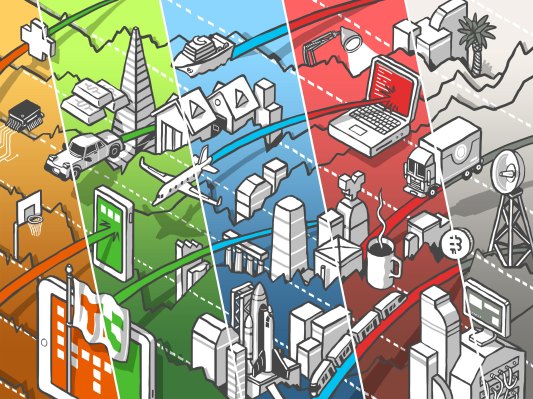Welcome to The TechCrunch Exchange, a weekly startups-and-markets newsletter. It’s inspired by the daily TechCrunch+ column where it gets its name. Want it in your inbox every Saturday? Sign up here.
When does a startup stop being a startup? It’s a tougher question than it seems — tech companies have found that there’s power in words. Let’s explore! — Anna
Startup versus scaleup
“We’re not a startup, we’re a scaleup,” marketing executive Cristina Marcos told me of her employer, interactive content creation platform Genially. This was actually one of the first things she said when we met in person earlier this week, and her emphasis really caught my attention.
On the one hand, it seems reasonable to say that a company like Genially, which has millions of users and raised more than $26 million in funding, is no longer a startup. On the other, “startup” is such a buzzword that it is interesting to see companies steering away from it.
That “scaleup” is Genially’s preferred term over “startup” is noteworthy. Joe Haslam, a professor at IE Business School in Madrid, has been arguing for almost a decade that “scaleup is the new startup.” But even he concedes that the “scaleup” term didn’t take off as much as he expected.
Haslam is the executive director of IE’s Owners Scaleup Program, whose landing page points out key differences between startups and scaleups: “A startup experiments; a scaleup simplifies.”
Whether a company is a startup or a scaleup makes a big difference in terms of the strategy it should follow, Haslam teaches his students. Before product-market fit, for instance, is not the right time to invest in sales and marketing.
But when Marcos referred to Genially as a scaleup, she wasn’t doing it for internal strategy purposes. This was a matter of communicating that after launching in 2015, the organization is now a grown-up company. It is an important point, she said.
Talking to Marcos was a good reminder for me of how hard it is for incipient companies to be taken seriously, and how it can get in the way of customer acquisition.
If you describe yourself as a startup, prospects might wonder whether you’ll still be around in a few years. Or whether you will have proper customer service to support them. This is a legitimate fear, by the way — customer service is extremely difficult for an early-stage startup to get right — and keep on getting right as it grows.
Customer skepticism is arguably a larger issue in B2B than in B2C. But it also affects a B2B2C organization like Genially, which uses freemium tiers to power a product-led growth model. With a model like this, a scaleup conveys more trust than a startup, Marcos explained. And it doesn’t hurt either, she added, when media outlets label your company as a future unicorn, or “soonicorn.”
Another reason for grown-up startups to call themselves scaleups is that it can help them be taken seriously by governments hoping for more unicorns. It is often in this sectoral context that the term “scaleup” is being used, as a way to insist on the collective impact these companies can have in terms of value and job creation.
If “scaleup” hasn’t overtaken “startup” in popularity, it’s because the “startup” term lends itself to being stretched. We are guilty of this, too — depending on context, it can refer more to company culture and background than to its structure.
On some levels, you could argue that a 10-person startup has more in common with a soonicorn than with an SMB of its size. And a late-stage tech company, or even a public one, still retains startup aspects that separate it from a traditional corporation. Not to the extent of exempting it from scrutiny, though — especially now that layoffs are making a comeback.
The current downturn will be an interesting time to see if there’s a shift in how companies self-identify. Considering how high-risk startups are, Haslam gives his students a clear dividing line: If they’re looking to get hired, he tells them to join scaleups, not startups.
